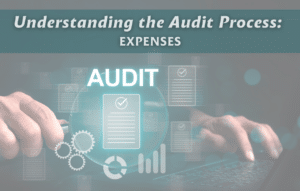According to the IRS, a “digital asset” is a digital representation of value recorded on a cryptographically secured distributed ledger or similar technology. If a particular asset has characteristics of a digital asset, it is treated as one for federal income tax purposes.
Taxpayers who have transactions with digital assets that result in taxable gain or loss during the year must report the related gain or loss on their federal income tax returns. This post reviews step-by-step instructions for properly accounting for activity with digital assets, such as cryptocurrency and non-fungible tokens (NFTs). (More details at irs.gov)
Keep Adequate Records
The Internal Revenue Code and regulations require taxpayers to maintain sufficient records to establish the positions taken on their tax returns. Regarding digital assets, records include documentation of the purchase, receipt, sale, exchange or any other disposition of the digital assets by fair market value measured in U.S. dollars.
Determine Basis and Calculate Gain or Loss
Generally, the basis of a digital asset is the amount paid for the digital asset in U.S. dollars plus any transaction costs incurred. You will need specific information about the digital asset: what type, when created (date and time), number of units, Fair Market Value.
See Sales and Other Dispositions of Assets, Publication 544 and Basis of Assets, Publication 551 for more information about the character of gain or loss and the computation of basis.
Determine Whether Capital Gain Is Short-term or Long-term
If the sale of the digital asset is a capital gain, it is important to determine if it is a short-term or long term capital gain. The holding period begins on the day after the digital asset is acquired and ends on the day it is sold or exchanged. Assets held less than one year are considered short-term, and assets held longer than one year are long-term. This distinction is important as long-term capital gains are taxed at reduced tax rates as compared to short-term capital gains.
Appropriately Disclose Digital Asset Activity
The Internal Revenue Service has added a specific disclosure to most tax returns that requires taxpayers to answer “yes” or “no” to the following question:
At any time during 2023, did you: (a) receive (as a reward, award or payment for property or services); or (b) sell, exchange, or otherwise dispose of a digital asset (or a financial interest in a digital asset)?
It is important that taxpayers pay attention to this question and answer appropriately in order to file a complete and accurate tax return. See irs.gov for guidance on answering the question.
Report Digital Asset Income on the Proper Form
If the taxpayer’s digital asset transactions give rise to capital gain or loss, Form 8949, Sales and other Dispositions of Capital Assets should be used to calculate the capital gain or loss, which should then be reported on Schedule D (Form 1040), Capital Gains and Losses. If the taxpayer received digital assets as compensation for services, the value of the digital assets should be included with compensation or other income on his or her tax return.
Recently the IRS provided a draft of the new Form 1099-DA, Digital Asset Proceeds From Broker Transactions, which brokers and cryptocurrency exchanges will be required to issue to detail digital assets owners’ digital transactions for the year.
While a draft of the form was released in April 2024, it is not expected to be issued by the required parties until 2026, for information applicable to the 2025 tax reporting year. Ongoing litigation to contest who the new reporting rules actually apply to may impact who ultimately is required to issue this form in the future.
GYF continues to monitor developments in this area. If you need assistance with reporting digital asset income, please contact the GYF Tax Services Group at 412-338-9300.
Additional Resources








